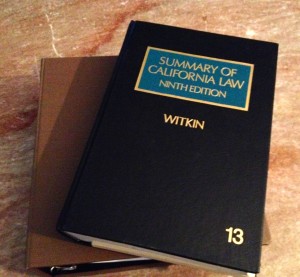Emotional Distress Damages in Legal Malpractice
As a general rule, plaintiffs cannot recover damages for emotional distress in a legal malpractice action.
THE GENERAL RULE: EMOTIONAL DISTRESS UNAVAILABLE WHEN THE PLAINTIFF SUFFERS ONLY PROPERTY DAMAGE OR ECONOMIC LOSS
Where the attorney’s “ordinary negligence” causes only economic or property-related damages, the plaintiff cannot recover damages for emotional distress. The stress of these losses, without more, doesn’t justify an award for emotional distress in a legal malpractice action.
THE EXCEPTION: WHERE THE ATTORNEY’S CONDUCT JUSTIFIES AN EMOTIONAL DISTRESS CLAIM (SEPARATELY FROM DISTRESS RESULTING FROM THE PLAINTIFF’S ECONOMIC LOSS)
However, where the attorney’s conduct was egregious enough that significant or severe distress was a natural and foreseeable result of the lawyer’s malpractice, and where that distress was not merely the consequence of the loss of money and property. In other words – when the lawyer acts in a manner designed to cause the client distress or where distress results from the nature of the lawyer’s malfeasance, emotional distress damages may be available to the client, even in a malpractice action.
The client may also be able to claim emotional distress if the lawyer’s malpractice contributed to the client’s conviction and/or imprisonment. Loss of the client’s freedom is not a purely economic loss, and emotional distress resulting from loss of liberty may support an award of damages in a legal malpractice action (assuming, of course, that the client can meet the elements of the claim for emotional distress).
Note, however, that just because a lawyer’s conduct creates the opportunity to claim emotional distress, a court may not award the entire amount a plaintiff requests. Among other issues, California’s “Proposition 51” rule states that in personal injury actions (and the emotional distress component of a legal malpractice action is a personal injury action for this purpose) defendants are proportionally liable for non-economic damages (i.e., emotional distress, pain and suffering). This means that the court can determine what percentage of the plaintiff’s emotional distress was caused by the lawyer’s misconduct, and proportion damages accordingly.
ALWAYS OBTAIN A PROFESSIONAL ASSESSMENT OF YOUR CLAIMS FROM AN EXPERIENCED LITIGATOR
Emotional distress is a tricky subject in legal malpractice actions, because of the need to determine the cause of the emotional distress and evaluate the strength of the claim. Many courts disfavor emotional distress claims in business-related actions, which further complicates the issue.
If you suffer emotional distress (especially severe or lasting distress) as a result of an attorney’s professional negligence or other wrongful conduct, consult an experienced malpractice attorney promptly and obtain an individualized assessment of your potential claims. Mention the distress, even though it’s not always available as a claim, because it’s important for your attorney to know about all of your actual and potential claims in order to provide a proper evaluation of your situation and legal rights.
***
Disclaimer: Damages, like other elements of a legal malpractice claim, is a complicated topic, and articles like this can only touch on the basic issues. The details of a legal malpractice claim are individualized and complicated. Your rights and experiences may vary. Never use an article (or any online source) to evaluate your legal claims. Always speak with an experienced lawyer promptly to obtain a personalized evaluation of your claims, possible damages, and options.















